Lost historic Gaelic manuscripts found after 50 years
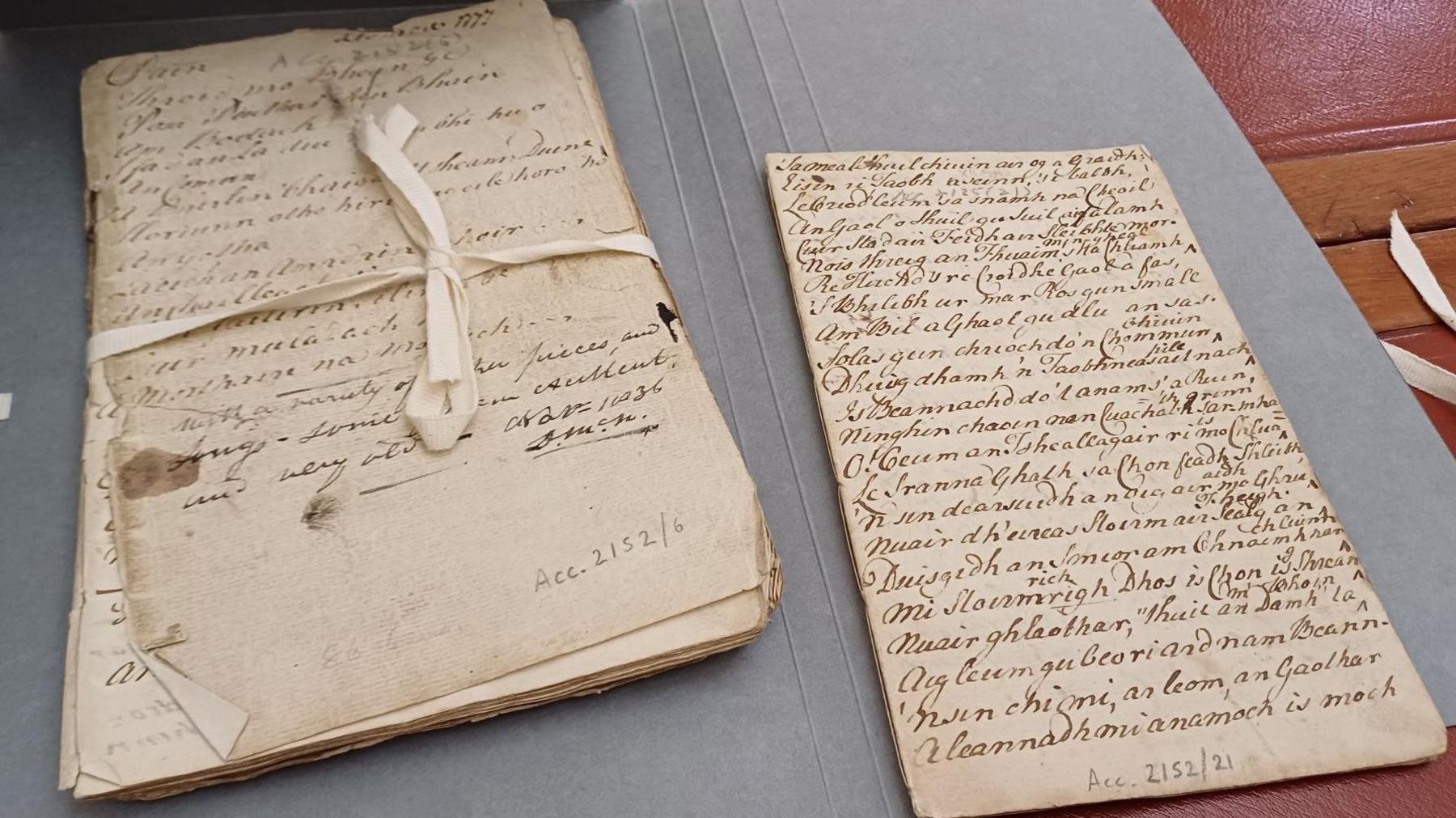
More than 50 manuscripts disappeared in the 1960s
- Published
Dozens of Gaelic manuscripts have been found and returned to the National Library of Scotland in Edinburgh after being missing for more than 50 years.
Police investigated the disappearance of the 56 historic documents in the 1960s, but no trace of them could be found.
The items include poetry, sermons, songs and previously unknown works.
The manuscripts were discovered during research of a collection of personal papers by Prof Rob Ó Maolalaigh, of the University of Glasgow.
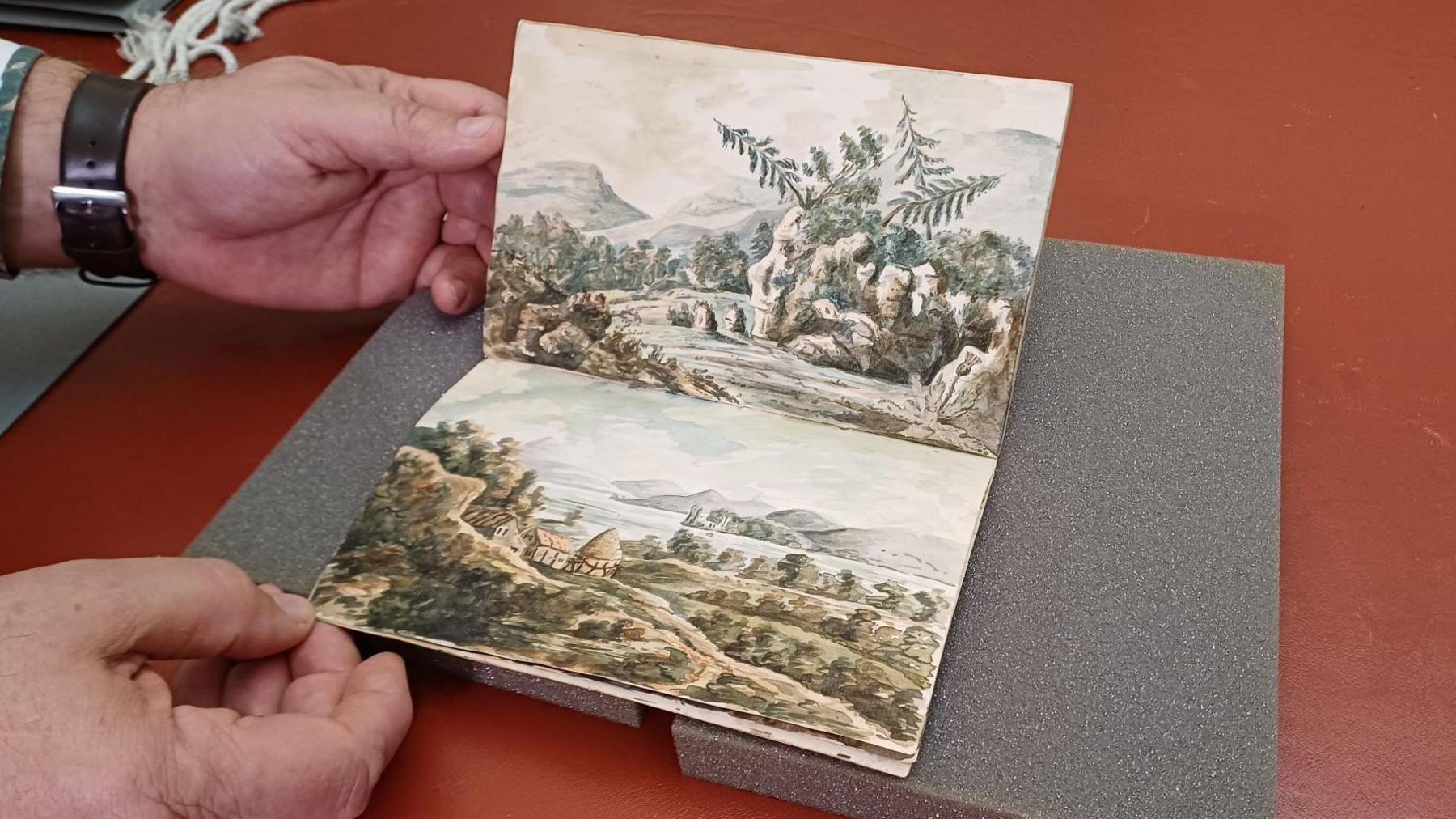
The collection includes a diary with entries written in Scotland and Barbados
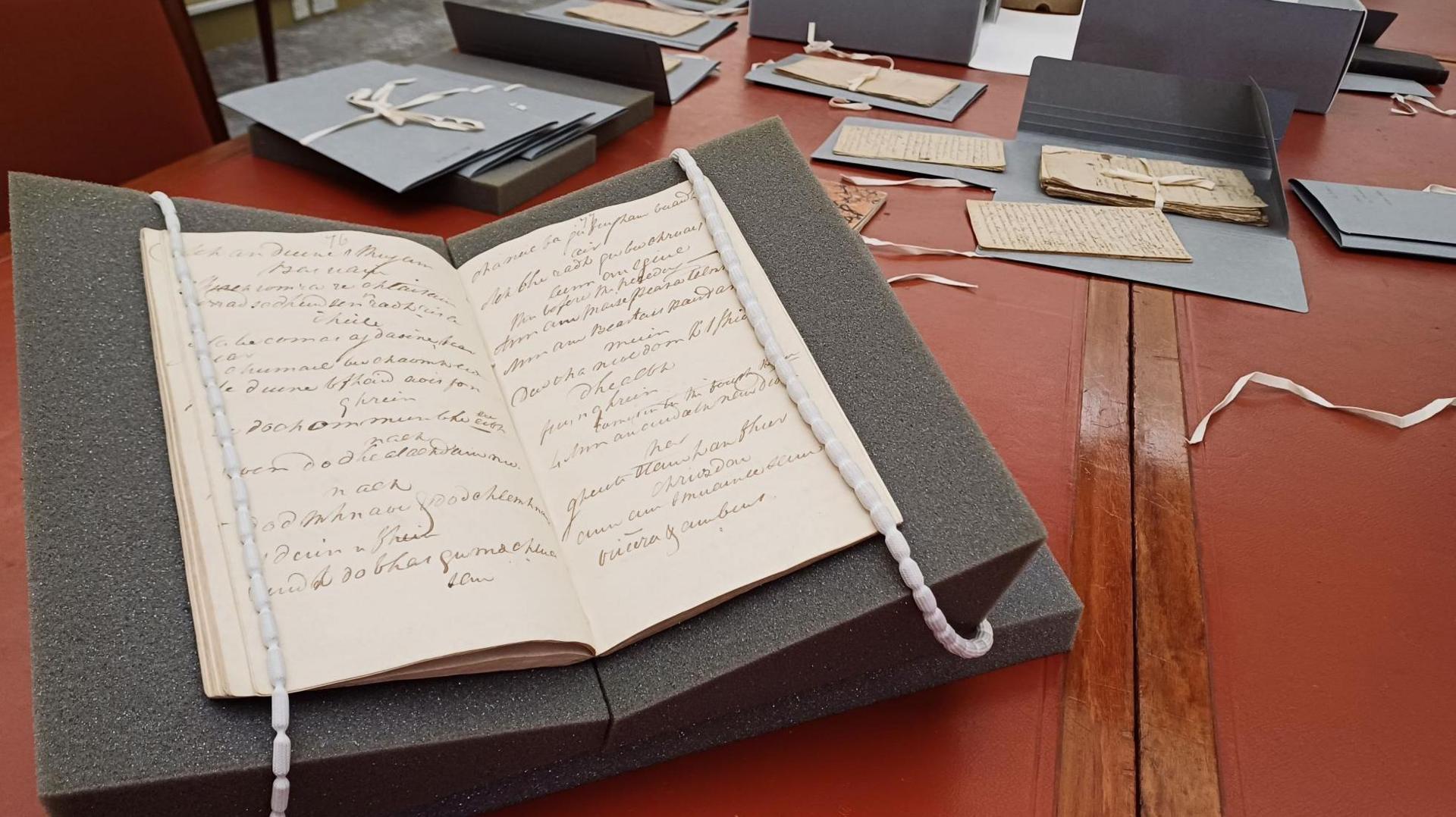
The collection has been returned to the care of the National Library of Scotland
It is not known why the manuscripts were taken, or if they were mislaid and then lost, or how they ended up among the personal papers.
Prof Ó Maolalaigh said they were of major significance, and their absence had a detrimental effect on a generation of Gaelic studies.
He said it caused a "hiatus in Gaelic scholaship".
The manuscripts were collected by the Rev Donald MacNicol, minister of Lismore, and the the Rev Alexander Irvine, minister of Little Dunkeld, in the 18th and 19th centuries.
The missing documents form part of their wider collections, which have been important sources for Gaelic editors and academics for over 200 years.
Among the items in the manuscripts are letters, sermons in Gaelic and English, a Gaelic diary written in Scotland and Barbados, and a large amount of Gaelic poetry.
Some of the verse was by well-known figures, such as Jacobite poet Alasdair Mac Mhaighstir Alasdair.
Other works were found to have been composed by Gaelic bards who have not previously been studied.
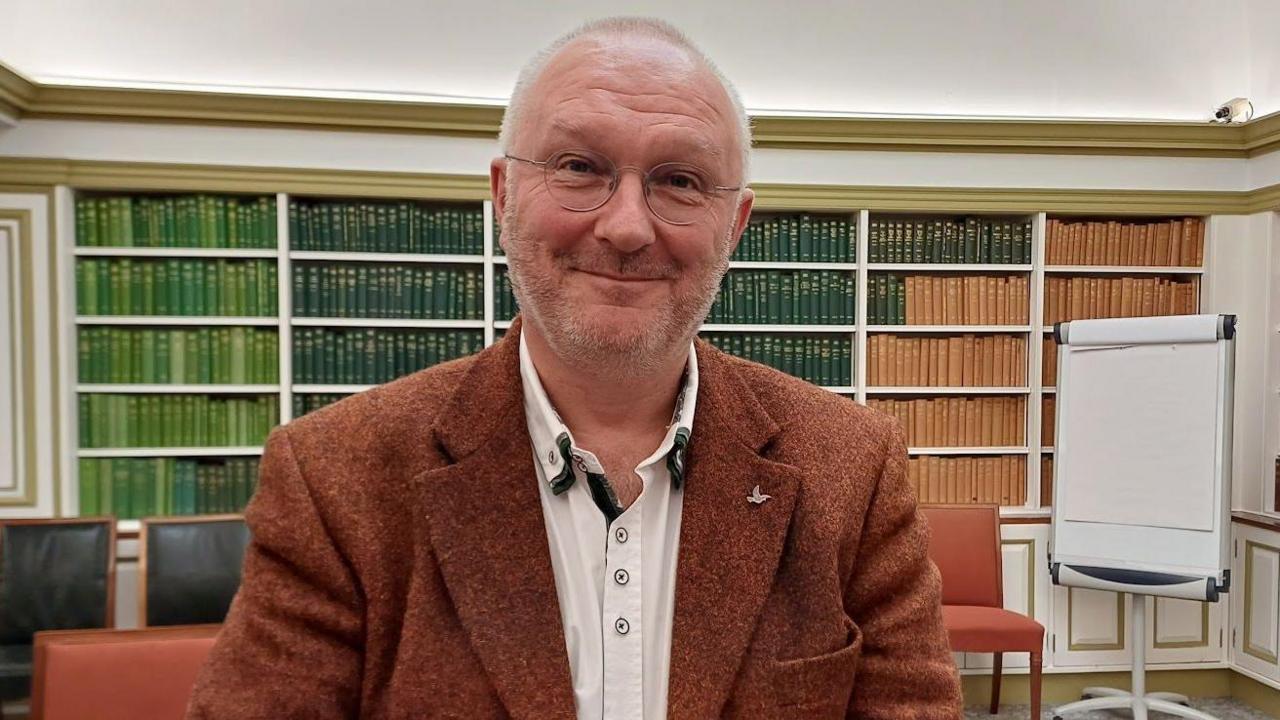
Prof Rob Ó Maolalaigh uncovered the lost works among a collection of personal papers
There is also a collection of songs by the Sutherland poet Rob Donn Mackay, from more than 200 years ago.
An accompanying note suggests the songs were written down while they were being sung by his daughter Janet in Edinburgh's Thistle Street in December 1800.
Prof Ó Maolalaigh had feared the manuscripts would never be found.
He said: "An awful lot of Gaelic manuscripts had been lost over the centuries, for example at sea when people were travelling.
"But having sat down and gone through the collection in more detail I did realise that actually these were materials that had been missing for about 50 years."
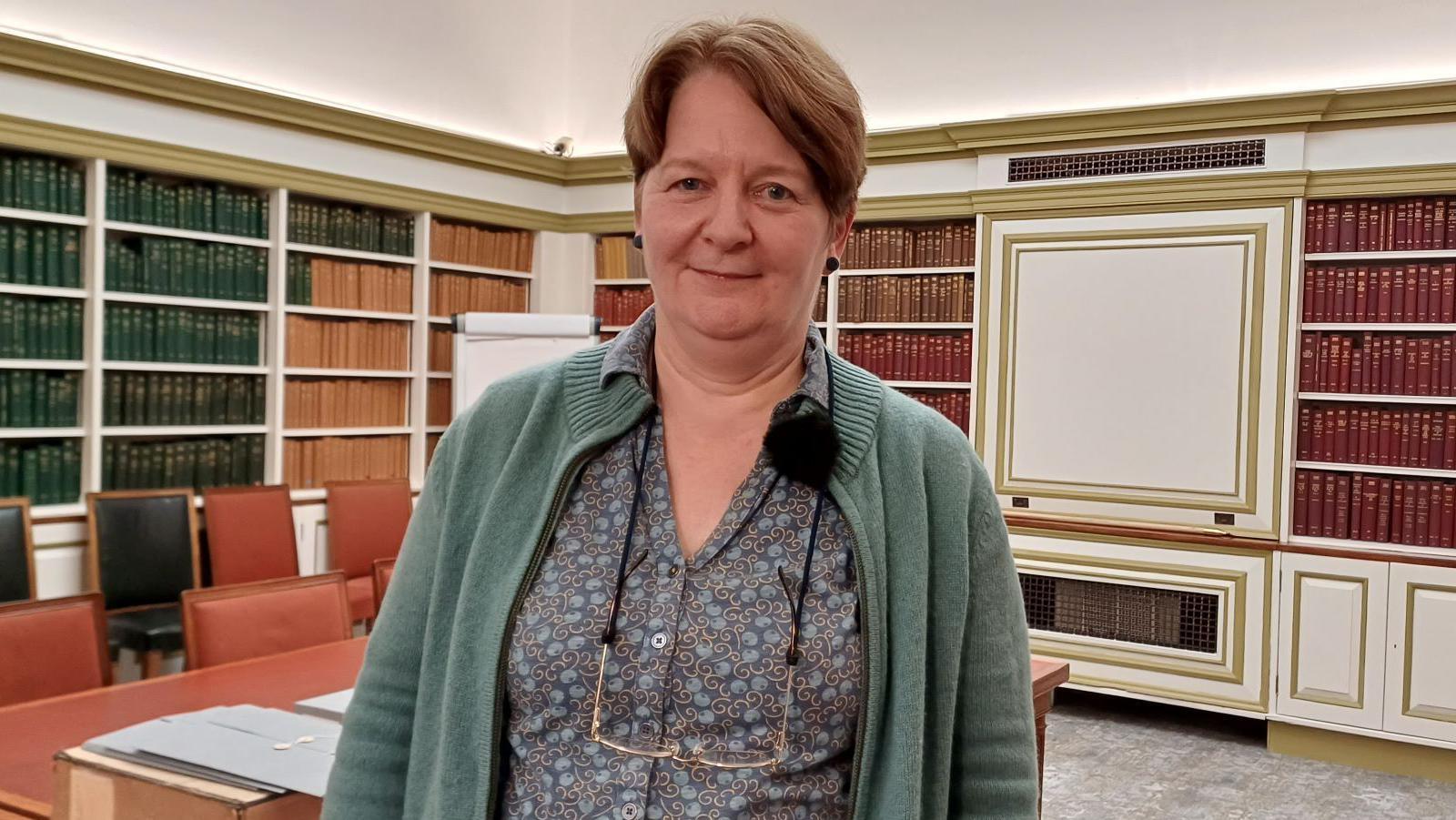
Manuscripts curator Ulrike Hogg said she was delighted the manuscripts had been found
Chris Cassells, head of archives and manuscript collections at the National Library of Scotland, welcomed the return of the documents.
He said: "The police were involved but there was no conclusion to that investigation.
"It was a significant loss, it left a gap in existing collections, and it's had a really detrimental impact on a generation of scholars who haven't been able to access that material."
Manuscripts curator Dr Ulrike Hogg added: "They had been catalogued, so people knew what they didn't have.
"Because of their significance as evidence of Gaelic literature and poetry, just written documentation of it, you can't describe how important it is to have them back, and how delighted we are with it."